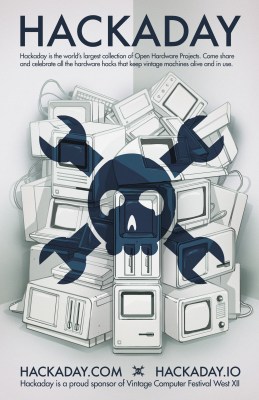This weekend, November 18th and 19th, the greatest vintage computer conference in Europe is going down. It’s the Vintage Computer Festival Europe, and if you’re around Zurich this weekend, we highly recommend that you check it out.
On deck for this year’s VCF Europe is an incredible amount of amazing retrotechnology. A demonstration of high-resolution graphics without using computer memory will be found in a few Tektronix storage tube terminals (their Wikipedia entry is phenomenal, by the way). There will be a few Olivetti microcomputers on display demonstrating Italy’s contribution to the computer revolution. A PDP 6 will be recreated, and a 1964 IBM 360/30 will be revived. There will be discussions on using logarithms as a basis for computers. [Oscar], creator of the PiDP-8/I will be bringing his latest project, an exquisite miniature recreation of a PDP-11/70, with a molded enclosure and purple toggle switches.
This is a retrocomputer conference where an Apple I is the least interesting computer on display, an extremely difficult feat to pull off. VCFe will be held at Rote Fabrik in Zurich, and tickets are five units of the local currency per day. You can check out the festival on Twitter, Google+, and the main website.


















